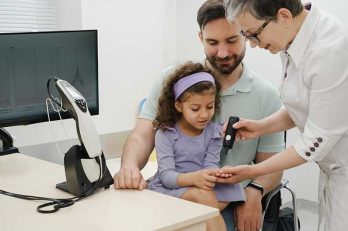Good digestive health is essential for the overall health of adolescents. A healthy digestive system ensures appropriate nutrient absorption, supports a robust immune system, and contributes to overall vitality. As parents and caregivers, it is our responsibility to take preventative measures to ensure the digestive health of our children. In this article, we will discuss five essential measures that can be taken to promote optimal digestive health in children.
1.Promote a Well-Rounded Diet
Providing children with a well-balanced diet is one of the most vital stages in promoting their digestive health. A diet rich in fruits, vegetables, whole cereals, lean proteins, and dairy products provides the necessary nutrients and fiber for digestive health. Particularly, fiber helps regulate bowel movements, prevents constipation, and promotes the development of healthy gut bacteria.
Limit your intake of processed foods, sugary snacks, and excessive quantities of fast food, which can cause digestive problems and disrupt the natural balance of gut bacteria. Encourage children to consume copious amounts of water, as adequate hydration is necessary for appropriate digestion.
2.Encourage Regular Mealtimes
Establishing a regular mealtime routine is another important measure for the digestive health of children. Consistent meal and refreshment times help regulate the natural rhythm of the digestive system. Skipping meals or consuming in an irregular manner can result in indigestion, overeating, and poor nutrient assimilation.
Make family meals a priority whenever feasible. Not only does dining together promote healthy eating habits, but it also promotes open communication and family unity.
3.Encourage Good Hygiene
It is essential to practice proper hygiene to prevent digestive infections, which can be especially dangerous for infants. Teach your children to completely wash their hands with soap and water before and after eating and using the restroom. Reinforce the significance of handwashing, particularly in public locations and prior to food preparation or handling.
In addition to practicing proper hand hygiene, ensure that food is properly prepared and stored to prevent contamination. Teach your children about food safety, including how to avoid consuming raw or undercooked meats and eggs.
4.Accentuate Physical Activity
Regular physical activity is crucial for sustaining a sound digestive system. Encourage your children to participate in enjoyable, age-appropriate physical activities, such as riding bikes, practicing sports, or simply running around the yard. Exercise helps maintain regular digestion, reduces the risk of constipation, and contributes to overall health.
5.Manage Anxiety and Stress
Children’s digestive health can be negatively impacted by anxiety and stress. Teach your children healthful stress management techniques, such as deep breathing, mindfulness, and engaging in relaxing activities such as reading and drawing. Ensure that they have a supportive environment in which they can communicate their emotions and concerns.
The conclusion
Putting the digestive health of children first is an investment in their future well-being. You can help your children develop a strong and resilient digestive system by taking these five essential precautions: encouraging a balanced diet, nurturing regular meal times, promoting good hygiene, emphasizing physical activity, and managing stress and anxiety. Keeping in mind that each child is unique, it is essential to tailor your approach to their particular requirements and preferences. In doing so, you will prepare them for a lifetime of digestive and general health.




